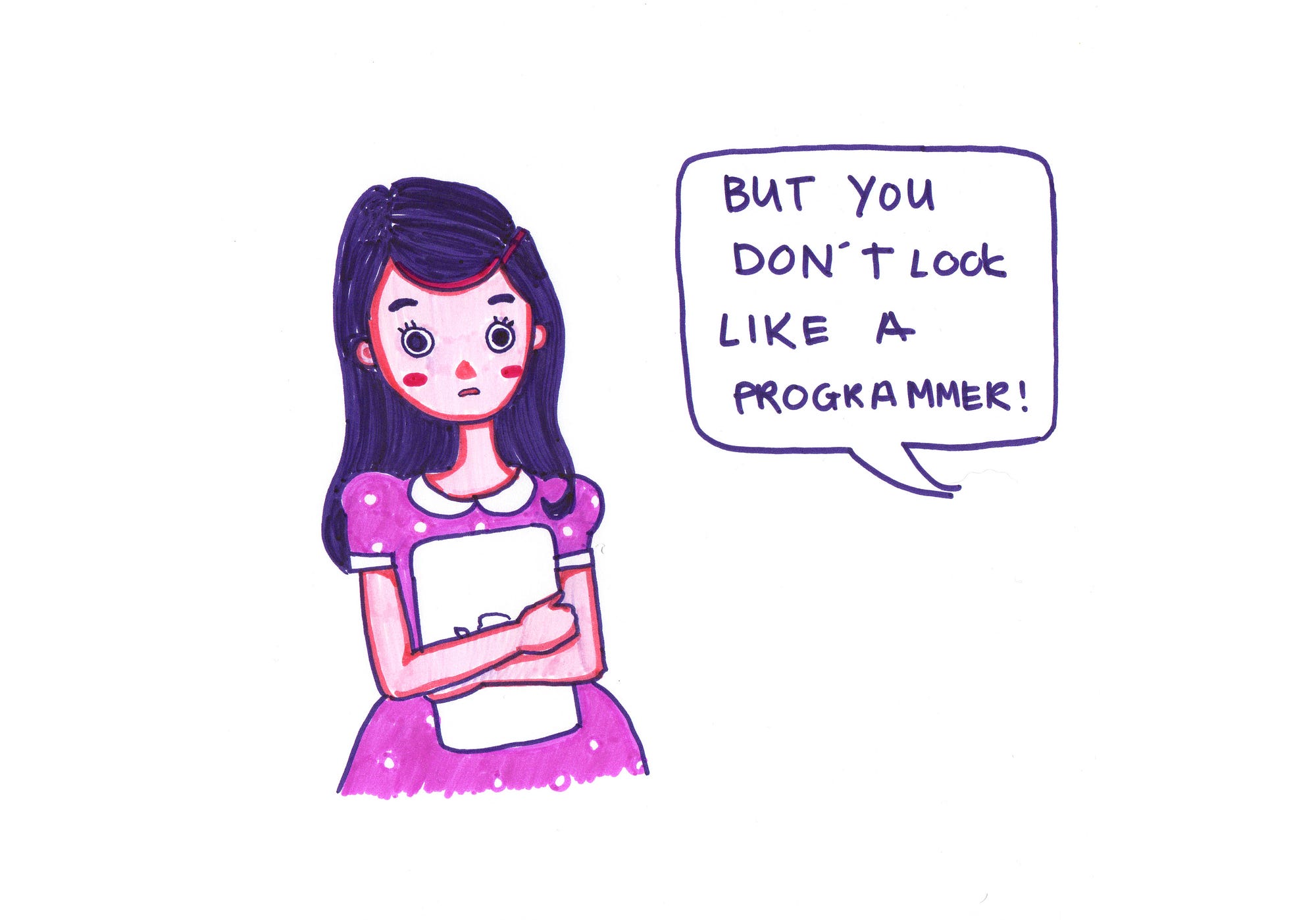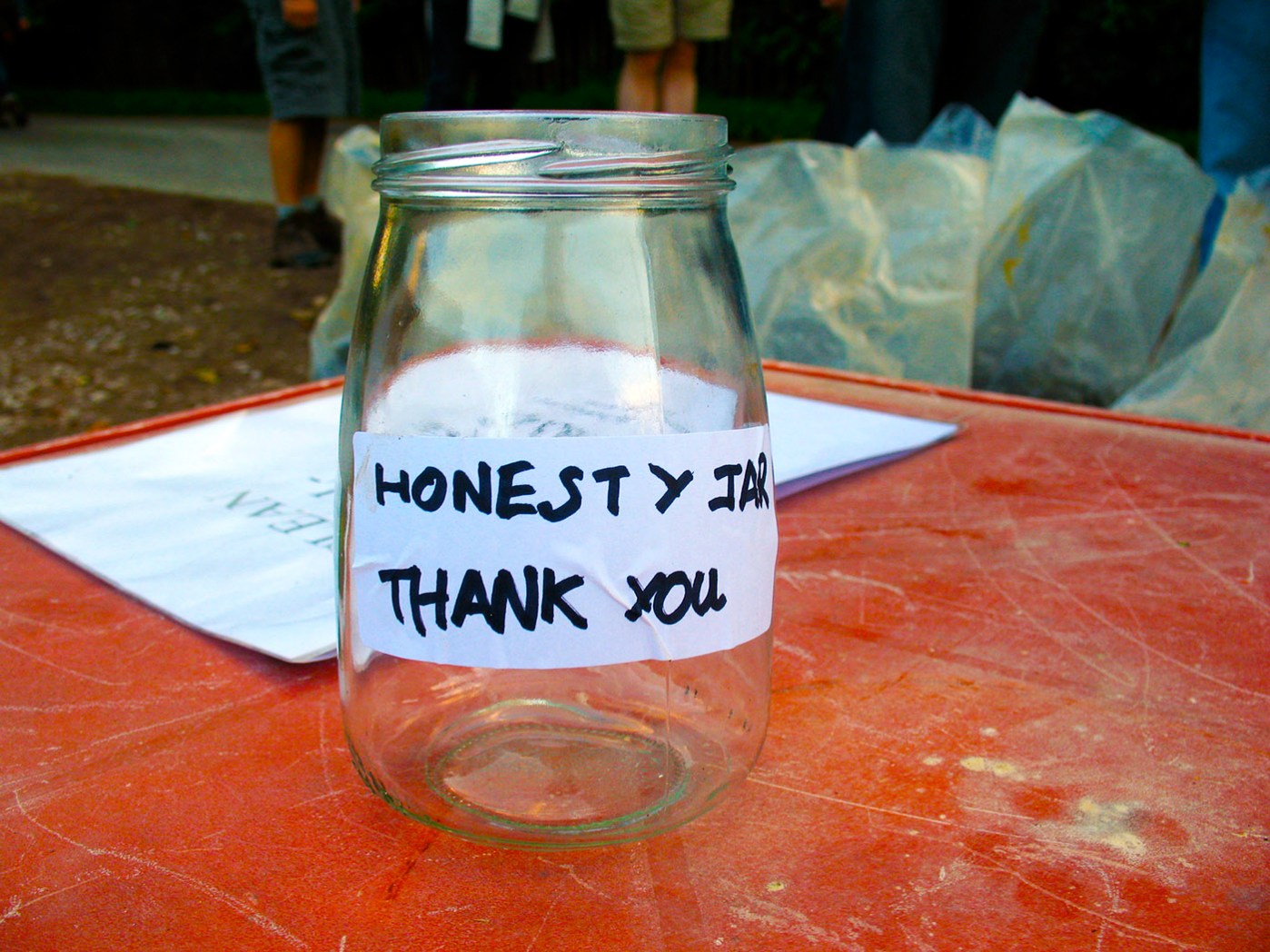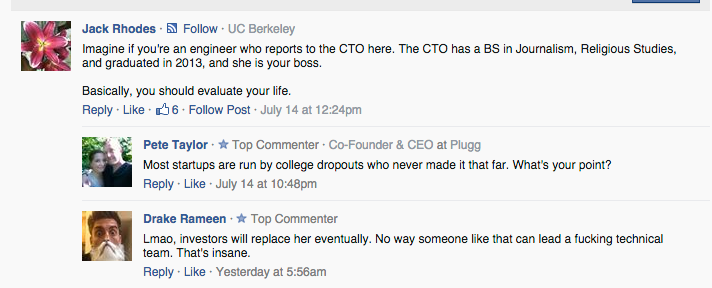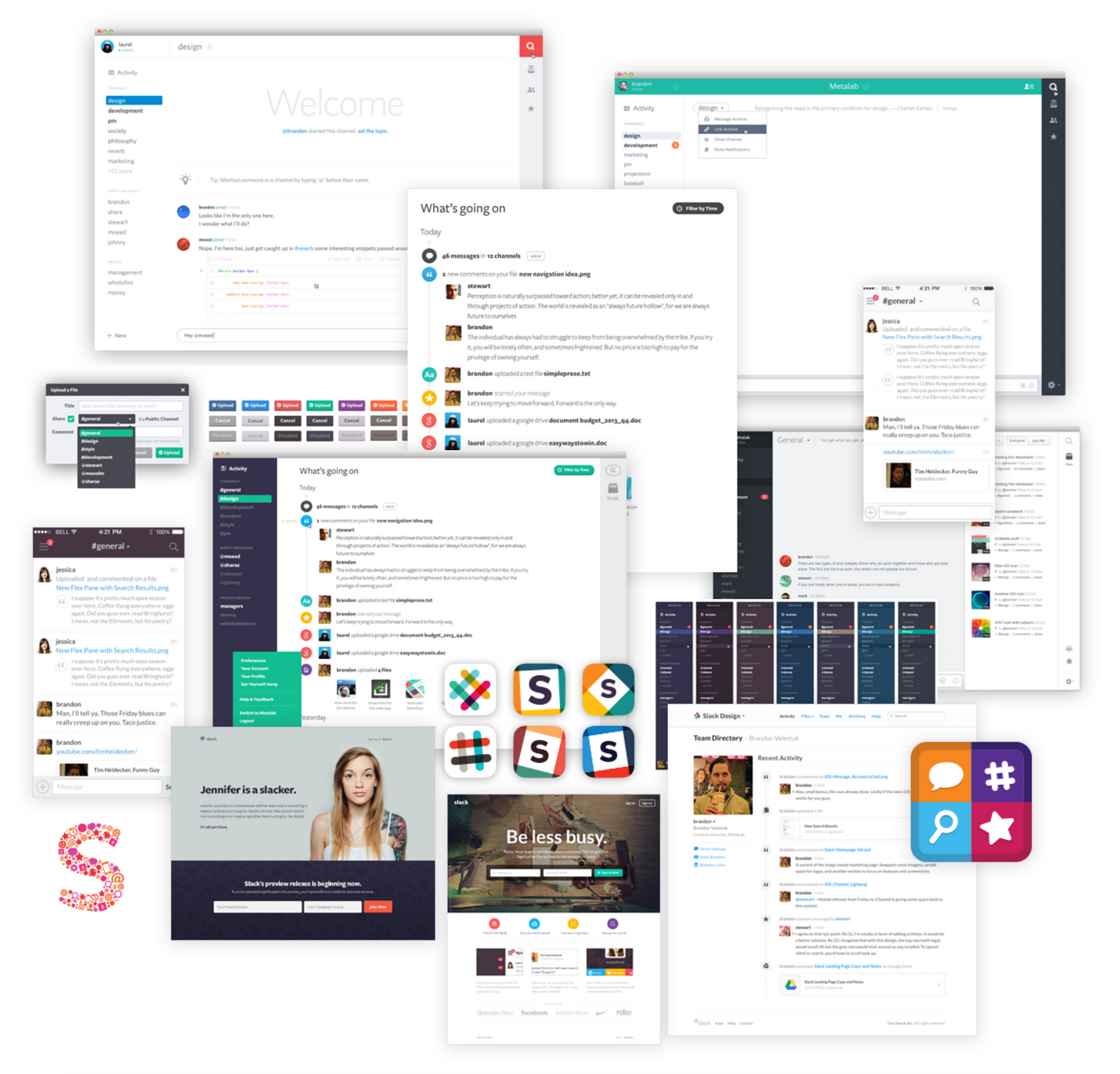Friday, July 31, 2015
Survivors
“Damaged people are dangerous. They know they can survive.” Read more from Mark Suster in Both Sides of The Table.
A Psychologist as Warden? Jail and Mental Illness Intersect in Chicago
"Jails were never meant to be mental health hospitals." - Sheriff Thomas Dart, of Cook County, Ill., stressing how much the country's prisons have become holding centers for the mentally ill.
Read more in the NYT.
Thursday, July 30, 2015
Coding Like a Girl
Written about the tech industry, but this piece is excellent for anyone working in a gender-imbalanced field.
Read more in Medium. Think people of all genders might appreciate this perspective.
Thanks, Leia
Read more in Medium. Think people of all genders might appreciate this perspective.
Thanks, Leia
Warren Buffett’s Family Secretly Funded a Birth Control Revolution
For Warren, it’s economic. He thinks that unless women can control their fertility—and that it’s basically their right to control their fertility—that you are sort of wasting more than half of the brainpower in the United StatesThis piece in Bloomberg is worth reading. In part for what Warren Buffett has achieved, but also for how he thinks about re-investing his wealth back in the community.
Thanks, +Tom Janssens
First Round Capital Measures Its Startup Success, Minus Uber
A couple excerpts:
Here’s the dream startup founder: it’s a she, and she’s young, Ivy League-educated, an alum of a top tech company, and has a co-founder. Those are the characteristics shared by venture firm First Round Capital’s most successful companies.
First Round published a report Wednesday analyzing 300 companies it has invested in since 2005 to find what works, and what doesn’t. Some of its better-known investments include furniture seller One Kings Lane, glasses retailer Warby Parker and car service Uber. But like all VCs, it also has had misses like recently-shuttered home services company HomeJoy.
The best indicators of success are where founders were educated and where they previously worked. Companies with at least one founder that attended an Ivy League school, MIT, CalTech or Stanford performed 220% better than average. Meanwhile startups with a founder that hails from Google, Amazon, Apple, Facebook, Microsoft, or Twitter performed 160% better...Read more in the WSJ.
...Companies with at least one female founder performed 63% better than companies with all male founding teams, according to the study. In an indication of how few companies have female founders, First Round said three of its top 10 investments had a woman on board.
Wednesday, July 29, 2015
Bay Area to Standard American English Translator
Sigh:
Bay Area
“Who are you again?”
\ˈhü\ \ˈär\ \ˈyü\ \e-ˈgān\
English “What company do you work for?”Thanks, +Mark Godfrey
If you think women in tech is just a pipeline problem, you haven't been paying attention
"According to the Harvard Business Review, 41% of women working in tech eventually end up leaving the field (compared to just 17% of men), and I can understand why."
Read more in Medium.
Read more in Medium.
Tuesday, July 28, 2015
Why can’t Washington build a website?
The government spends $80 billion a year getting the Internet wrong. Here’s how to fix it. Read more in Politico.
Monday, July 27, 2015
Putting a Price on a Human Egg
"Lawsuit claims price guidelines used by fertility clinics artificially suppress the amount women can get for their eggs."
Read more in the WSJ.
Thanks, +Katherine Stiner
Read more in the WSJ.
Thanks, +Katherine Stiner
Barking Up the Wrong Tree
Think this is true:
1) Hang Around The People You Want To BeRead more in Bakadesuyo.
The Longevity Project, which studied over 1000 people from youth to death had this to say:The groups you associate with often determine the type of person you become. For people who want improved health, association with other healthy people is usually the strongest and most direct path of change.... Via The 100 Simple Secrets of Successful People:Psychologists have observed that bad habits can spread through an office like a contagious disease. Employees tend to mirror the bad behaviors of their co-workers, with factors as diverse as low morale, poor working habits, and theft from the employer all rising based on the negative behavior of peers. – Greene 1999When I spoke to Stanford GSB professor Bob Sutton, he told me his #1 piece of advice to students was this:When you take a job take a long look at the people you’re going to be working with — because the odds are you’re going to become like them, they are not going to become like you.
Mindful coders, Thich Nhat Hanh has a retreat for you
Thich Nhat Hanh is putting on a meditation retreat FOR developers Oct 11-16.
My brain can't handle that the two things I'm so much loving right now might co-exist. Thich Nhat Hanh is one of my all-time favorite zen authors.
Thanks, +Jamie Gates
My brain can't handle that the two things I'm so much loving right now might co-exist. Thich Nhat Hanh is one of my all-time favorite zen authors.
Thanks, +Jamie Gates
Sunday, July 26, 2015
‘Modest’ Bathing Suits Make a Splash: Leggings, Sleeves, ‘Skorts’
"Swimwear dives into new market, offering more coverage."
Hm, good for avoiding sun exposure and minimizing skin cancer risk. Read more in the WSJ.
Thanks, Tom
Hm, good for avoiding sun exposure and minimizing skin cancer risk. Read more in the WSJ.
Thanks, Tom
Technology Is Magic, Just Ask The Washington Post
An excerpt:
Most people don’t understand how technology works. When they flip a light switch, or tap their phone, what happens next is essentially magic to them. Oh, they may be able to handwave a bit about electrons and volts and microprocessors and radio waves and packet-switched networks, but they’re just mouthing the words. They don’t actually understand any of those things. They’ve never done the math.
Which is fine! Not everyone can or should be an engineer. And as Arthur C. Clarke once said, “Any sufficiently advanced technology is indistinguishable from magic.” Our collective network of pocket supercomputers, communicating almost instantaneously across the globe, comes pretty close to “sufficiently advanced” on its good days.
But “technology is magic” is a dangerous meme. It makes non-engineers begin to believe that technology really can do anything its wizard-engineers desire. It causes them to not understand that they don’t understand. And so it leads to Very Serious People making risibly embarrassing–and potentially dangerous–mistakes.Read more in TechCrunch.
What Makes Founders Succeed
Favorite line: Starting a startup is a process of trial and error. What guided the founders through this process was their empathy for the users. They never lost sight of making things that people would want.
Read more in Jessica Livingston's blog.
Read more in Jessica Livingston's blog.
Salesforce Makes Strides Toward Gender Equality in Silicon Valley
An excerpt:
Up to that point the Women’s Surge had resulted in promotions for some, but Ms. Robbins felt there was more to be done. At one of her regularly scheduled meetings with Mr. Benioff, she brought Ms. Seka along, and the two made a stark claim: Women were probably being paid less than men at Salesforce.
Mr. Benioff didn’t believe it.
“I didn’t know that there was a pay issue until they came to me and said so,” Mr. Benioff said. “My reaction was, ‘I don’t really think this is right. This isn’t how we operate.’ ”
Wanting to see the numbers himself, Mr. Benioff commissioned a review of all 16,000 salaries at Salesforce. “I said ‘Let’s start at the top, one person at a time,’ ” he said.
As the data came in, ugly, age-old truths were revealed. It turned out that Ms. Robbins and Ms. Seka were correct: Many women at Salesforce were being paid less than their male counterparts.
“In certain positions, people were not being paid at the same level,” Mr. Benioff acknowledged.
Now Salesforce is in the process of raising the salaries of underpaid women (and a few men), one at a time.Read more in the NYT.
Silicon Valley Lost, And Found
"Silicon Valley is a place that is just as much about people reinventing themselves as it is about people reinventing industries."
Read more in TechCrunch.
Read more in TechCrunch.
Goldman Sachs... on Millennials?
Surprised to see such a well-researched piece on Millennials from GS. Check out the infographic.
Saturday, July 25, 2015
Tina Seelig -- On Creativity vs. Innovation
Thought the first 43 min of this podcast was particularly good. How to get ideas out of your head, and into the world.
For ransom, bitcoin replaces the bag of bills
"In a digital version of a criminal shakedown, international hackers have gained control of files on millions of computers, taken down public websites and demanded that their victims pay up using the untraceable virtual currency."
Read more in the NYT.
Read more in the NYT.
The New American Slavery
More horrifying things in the news today. What's going on? Read more in BuzzFeed.
Lafayette Shooting Adds Another Angry Face in the Gunmen’s Gallery
This is horrifying. And yet another example of how our domestic violence protections in the US are failing. It impacts people far beyond the immediate family.
Read more in the NYT.
Read more in the NYT.
Friday, July 24, 2015
More Than Their Mothers, Young Women Plan Career Pauses
An excerpt:
Thanks, +Stephanie Gaufin
Women’s expectations have declined: 66 percent of millennial women said they expected their careers to be equal to those of their spouses, compared with 79 percent of baby boomers. Three-quarters of millennial women said they expected to succeed in combining their careers and family life, but that is a significant drop from the 86 percent of baby boomer women who said the same.And this one:
A study of female students graduating from the Wharton School at the University of Pennsylvania found that while 78 percent of the business school graduates in 1992 said they planned to have children, that share had dropped to 42 percent by 2012. In some cases they did not want to, and in others they did not think they could make it work because of a lack of organizational support, according to Stewart Friedman, director of Wharton’s work/life integration project.Read more in the NYT.
Thanks, +Stephanie Gaufin
2 things to know about America's mass shooting epidemic
This graph is insane:
Or put another way:
Thursday, July 23, 2015
How I Structured Engineering Teams at LinkedIn and AdMob for Success
If you ever think you may be managing a team with technical objectives (probably everyone in future businesses), check out this FirstRound piece.
I was a professional sperm donor.
"In the latest installment of Hopes&Fears anonymous interview series, we talk to a struggling actor who made a livelihood selling his semen."
Read more in Hopes and Fears.
Read more in Hopes and Fears.
Wednesday, July 22, 2015
Why diversity matters to your tech company
Liked this example of why diversity (of all kinds) creates better outcomes:
Read Joelle Emmerson's post.
When the employees of an organization better represent their users and desired users, they will build more effectively for those groups. When YouTube’s almost entirely right-handed developer team built the iOS app without considering how left-handed people would use it, for example, 5% to 10% of videos were uploaded upside down as a result.:)
Read Joelle Emmerson's post.
Tuesday, July 21, 2015
Never Read The Comments
This happens all the time.
Check out Sarah Adler's piece in Medium. Favorite piece I've read this week.
Men who harass women online are quite literally losers, new study finds
No surprises here. Thought the data from Reddit, r/Halo, was notable.
Read more in the Washington Post.
Read more in the Washington Post.
Monday, July 20, 2015
Sunday, July 19, 2015
The Self-Hating Web Developer
Joe Query writes about managing his own psychology as he builds a programming skill set.
Managing our "superego" is challenge in all fields, as Ben Horowitz points out in his CEO reflection from 2011.
Thanks, Alex
Managing our "superego" is challenge in all fields, as Ben Horowitz points out in his CEO reflection from 2011.
Thanks, Alex
The Countries Where It's Best And Worst To Be A Woman
"Discrimination against women and girls isn't just a moral issue: It also carries a high economic cost."
Any guesses on whether or not the US is the Top 5? Read more in FastCo.
Any guesses on whether or not the US is the Top 5? Read more in FastCo.
Help People Living On The Street With A Simple Tap Of This App
"Maybe you don't have a dollar on you (or, worse, maybe you don't want to talk to a homeless person). Either way, this app lets you donate to ending homelessness from the comfort of your phone."
Read more in FastCo.
Read more in FastCo.
Welcome To The Unicorn Club, 2015: Learning From Billion-Dollar Companies
Aileen Lee writes a follow-up to her 2014 post on "unicorn" companies. A couple stats that stuck out:
Read more in TechCrunch.
- Take heart, “old people” of Silicon Valley: Companies with educated, tech-savvy, experienced 30-something, co-founding teams with history together have built the most successes. Twenty-something founders and successful pivots are the minority; dedicated CEOs who are able to scale their companies for the long haul are not.
- Teams win: a supermajority of companies (86%) has co-founders: 2.6 on average. 85% of co-founders had history together – from school, work or being roommates, the majority having worked together previously.
And this one on why coding is the new literacy:
- The overwhelming majority of companies (92%) start with a technical cofounder, and 90% have a founder with experience working in a tech company. It’s extremely rare for one of these companies to be started by someone who hasn’t worked in tech before. The few companies whose founders had no prior experience working in a tech are largely consumer-oriented companies, like Beats Electronics and Warby Parker.
Read more in TechCrunch.
Rich or Not, Entrepreneurs Are Happiest in Study
An excerpt:
The study, by Wharton management professors Ethan Mollick and Matthew Bidwell, surveyed 11,000 graduates of the Wharton MBA program, asking them to rate their happiness with their career overall, their current job and their work-life balance. It should be noted that this was not a particularly entrepreneurial-minded group: The majority took jobs in banking, consulting or financial services after completing their degree. But during the course of their careers, about 20% of the graduates ended up starting their own businesses.A few surprising stats:
- Grads running their own businesses ranked themselves happier than all other professions, regardless of how much money they made. (A few consultants came in at the top as well)
- Of the Wharton grads surveyed who started their own businesses, only 56% made a profit.
Saturday, July 18, 2015
The Decisive Marriage
An excerpt:
Do you have a decisive marriage?
New research shows that how thoughtfully couples make decisions can have a lasting effect on the quality of their romantic relationships. Couples who are decisive before marriage — intentionally defining their relationships, living together and planning a wedding — appear to have better marriages than couples who simply let inertia carry them through major transitions.Read more in the NYT.
The 1% Career Advice That’s Actually Useful
Chandra Kalle collected a series of the most popular blog posts in this Medium article.
The Really Big One
An earthquake will destroy a sizable portion of the coastal Northwest. The question is when.
Terrifying, but well-written. Read the full piece in the Atlantic.
Thanks, +Mark Godfrey
Terrifying, but well-written. Read the full piece in the Atlantic.
Thanks, +Mark Godfrey
Slack’s $2.8 Billion Dollar Secret Sauce
How Slack stole a multi-billion dollar market by becoming everyone’s favorite sassy robot sidekick. Read more in Medium.
How To Deal With Email After A Long Vacation
Thought Brad's auto responder was brilliant. Think I'll do this next time I take a holiday from work.
Entrepreneurship: The Ultimate White Privilege?
"A new study finds that future entrepreneurs score high on measures of teenage delinquency. They're also disproportionately white, highly educated, and male. Here's why that might not be a coincidence."
Read more in the Atlantic.
Read more in the Atlantic.
Entrepreneurs don’t have a special gene for risk—they come from families with money
An excerpt:
We’re in an era of the cult of the entrepreneur. We analyze the Tory Burches and Evan Spiegels of the world looking for a magic formula or set of personality traits that lead to success. Entrepreneurship is on the rise, and more students coming out of business schools are choosing startup life over Wall Street.
But what often gets lost in these conversations is that the most common shared trait among entrepreneurs is access to financial capital—family money, an inheritance, or a pedigree and connections that allow for access to financial stability. While it seems that entrepreneurs tend to have an admirable penchant for risk, it’s usually that access to money which allows them to take risks.
And this is a key advantage: When basic needs are met, it’s easier to be creative; when you know you have a safety net, you are more willing to take risks.Read more in Quartz.
What—And Who—Are Actually Causing Climate Change? This Graphic Will Tell You
A handful of countries and one very big sector are at the root of nearly all our problems.
Can you guess? Read more in FastCo.
Can you guess? Read more in FastCo.
Can your phone really know you’re depressed?
"Northwestern scientists believe an open-access android cell phone app called Purple Robot can detect depression simply by tracking the number of minutes you use the phone and your daily geographical locations."
Read more in Kurzweil.
Read more in Kurzweil.
Friday, July 17, 2015
Awkward First Date Goes Viral After Writer Live-Tweets The Whole Thing
The only thing better than a great first date is witnessing someone else having a bad one.
It's too good. Read more in Distractify.
It's too good. Read more in Distractify.
“But you don’t look like…”
This post is spot on.
When I talk with people in technology, it’s frequently assumed that I don’t belong. People ask me “are you a recruiter?” with alarming frequency. People will ask me if I’m at a technical event because my boyfriend is. It’s not uncommon for someone to say “but you don’t look like an engineer” or give me the look that says exactly the same thing. I haven’t been mistaken for a janitor, but nearly half of black and Latina women in science have.
It was a delight that this didn’t ever happen at HBS. At HBS, a common first question is “what section are you in?” – assuming you are a student. No one ever asks me “are you a partner?”Read more on Ellen Chisa's blog. I can't even being to count how many times this has happened to me. "But you don't look like..." [someone who works in PE, in a petroleum refinery, as a software engineer].
How to Be Polite
Paul Ford writes on the power of politeness.
This was exceptionally good. More in Medium.
Thanks, +Ellen Chisa
This was exceptionally good. More in Medium.
Thanks, +Ellen Chisa
Subscribe to:
Comments (Atom)
Why Women Aren’t C.E.O.s, According to Women Who Almost Were
"It’s not a pipeline problem. It’s about loneliness, competition and deeply rooted barriers." Read more in the NYT .

-
"It’s not a pipeline problem. It’s about loneliness, competition and deeply rooted barriers." Read more in the NYT .
-
"Why I don’t talk about race with White people." Read more in Medium .










/cdn0.vox-cdn.com/uploads/chorus_image/image/46817554/AP_926494940099.0.0.jpg)
/cdn0.vox-cdn.com/uploads/chorus_asset/file/680782/firearm-OECD-UN-data3.0.jpg)
/cdn0.vox-cdn.com/uploads/chorus_asset/file/3903242/gun%20homicides%20per%20capita.jpg)





